Arundhati Roy’s Biography
![Arundhati Roy’s Biography]()
Arundhati Roy is a writer actress and political activist from India. Suzanna Arundhati Roy is Arundhati Roy's full name. Arundhati Roy is from the Indian state of Meghalaya. Her birth date is November 24 1961. Arundhati Roy is best known for her award-winning novel The God of Small Things (1997) as well as her activism in environmental and human rights issues.
Arundhati Roy’s Age
Arundhati Roy's age is 61 years old as of 2022. Arundhati Roy was born on 24 November 1961. Arundhati Roy’s zodiac sign is Sagittarius. Arundhati Roy is from Aymanam Kottayam Kerala India.
Arundhati Roy’s Education
Arundhati Roy's school name is Corpus Christi High School (now Pallikoodam) Kottayam Kerala India followed by Lawrence School Lovedale Nilgiri Tamil Nadu India. Arundhati Roy’s college name is the School of Planning and Architecture Delhi India. Arundhati Roy’s highest educational qualification is A Degree in Architecture from the School of Planning and Architecture Delhi.
Arundhati Roy’s Family
![Arundhati Roy’s Family]()
Arundhati Roy’s father’s name is Rajib Michael Roy. Arundhati Roy’s mother’s name is Mary Roy. Arundhati Roy has a brother named Lalit Kumar Christopher Roy.
Arundhati Roy's father was a Bengali tea planter. Her mother was a Christian of Syrian descent who challenged India's inheritance laws by suing for Christian women's equal share of their father's estates.
Arundhati Roy met independent filmmaker Pradip Krishen in 1984 and he offered her a role as a goatherd in his award-winning film Massey Sahib. They married the following year. They worked together on two films Annie and Electric Moon as well as a television series about India's independence movement.
Arundhati Roy became disillusioned with the film industry and experimented with various fields including running aerobics classes. Arundhati Roy Roy and Pradip Krishen are currently separated but still married. Her second husband gave her two stepdaughters Mithva Krishen and Pia Krishen.
Arundhati Roy’s Relationship
Arundhati Roy and Gerard da Cunha
At the age of 16 she left home and enrolled in an architecture college in Delhi where she met architect Gerard da Cunha. Arundhati Roy and her first husband Gerard Da Cunha lived in Goa and made a living selling cake. She later worked as an aerobics instructor as well as an artist. They lived together in Delhi for a while before splitting up in Goa.
Arundhati Roy and Pradip Krishen
![]()
He is a well-known environmentalist and she is a well-known author and activist. We're talking about Pradip Krishen and his wife Booker Prize winner Arundhati Roy. She met independent filmmaker Pradip Krishen in 1984 and he offered her a role as a goatherd in his award-winning film Massey Sahib. They married the following year.
They worked together on two films Annie and Electric Moon as well as a television series about India's independence movement. Roy and Krishen are currently separated but still married. Arundhati Roy's husband discusses how they keep their marriage going despite spending most of the year apart. Though the couple is rarely seen together in public they are frequently seen together in their social circles.
Arundhati Roy’s Career
![Arundhati Roy’s Career]()
'I have never been particularly ambitious. I am not a careerist; I am not trying to get anywhere in a career. It is more important to engage with society to live it to have different experiences” said Roy addressing the audience at Sharjah International Book Fair.
She worked as a production designer after studying architecture at the Delhi School of Architecture. She has two screenplays to her credit including Electric Moon (1992) which was commissioned by Channel 4 television.
Her first novel The God of Small Things won the Booker Prize for Fiction in 1997 and has sold over six million copies worldwide. The novel was instantly successful being published simultaneously in 16 languages and 19 countries.
In 2004 the book The Ordinary Person's Guide to Empire was released. Since then she has released a second book of essays titled Listening to Grasshoppers: Field Notes on Democracy which explores the perverse aspects of democracy in modern-day India (2009).
In 2003 Arundhati Roy received the Lannan Prize for Cultural Freedom. The Ministry of Utmost Happiness her second novel was published in 2017. It was on the longlist for the Man Booker Prize and made it all the way to the National Book Critics Circle Award finals in the US.
She is also the author of several non-fiction books including The Cost of Living (1999) a scathing critique of the Indian government's handling of the contentious Narmada Valley dam project and its nuclear testing programme; Power Politics (2001) an essay collection; and The Algebra of Infinite Justice a collection of journalism.
Arundhati Roy Books
- The God of Small Things 1997
- The Ministry of Utmost Happiness 2017
- Azadi 2020
- The end of imagination 1998
- Kashmir: The Case for Freedom 2011
- The cost of living 1999
- The Doctor and the Saint: The Ambedkar-Gandhi Debate: Caste Race and Annihilation of Caste 2017
- Walking with the Comrades 2011
- Come September 2003
- The Hanging of Afzal Guru and the Strange Case of the Attack on the Indian Parliament 2006
Arundhati Roy’s Movies
Electric Moon
![]()
Electric Moon is a 1992 Indian film directed by Pradip Krishen and written by Arundhati Roy. Grapevine Media for Channel 4 Television and Bobby Bedi's Kaleidoscope Entertainment produced the film which was reviewed at the International Film Festival of India (IFFI) and the 36th London Film Festival (1992). The film was named Best Feature Film in English at the 40th National Film Awards. The movie's plot revolves around three aristocrats operating a colonial-style lodge for tourists in India who are having financial difficulties.
Massey Sahib
![]()
The plot of the movie is around Francis Massey is a clerk in the British India colonial government's deputy commissioner's office. He aspires to be a ruler and does everything in his power to impress his boss. Along with Raghubir Yadav Barry John and Virendra Saxena the movie also stars Arundhati Roy.
In Which Annie Gives It Those Ones
![]()
In Which Annie Gives It Those Ones is a 1989 Indian English-language television film directed by Pradip Krishen and written by Arundhati Roy. The movie's plot revolves around a television movie that follows the humorous experiences of an architecture student in his senior year of college.
Arundhati Roy’s Career Timeline
Fiction
| No. |
Title |
Publisher |
Year |
| 1 |
The God of Small Things |
Flamingo |
1997 |
| 2 |
The Ministry of Utmost Happiness |
Hamish Hamilton |
2017 |
Non-fiction
| No. |
Title |
Publisher |
Year |
| 1 |
The End of Imagination |
Kottayam: D.C. Books |
1998 |
| 2 |
The Cost of Living |
Flamingo |
1999 |
| 3 |
The Greater Common Good |
Bombay: India Book Distributor |
1999 |
| 4 |
The Algebra of Infinite Justice |
Flamingo |
2002 |
| 5 |
Power Politics |
Cambridge: South End Press |
2002 |
| 6 |
War Talk |
Cambridge: South End Press |
2003 |
| 7 |
An Ordinary Person's Guide To Empire |
Consortium |
2004 |
| 8 |
Public Power in the Age of Empire |
New York: Seven Stories Press |
2004 |
| 9 |
The Checkbook and the Cruise Missile: Conversations with Arundhati Roy(Interviews by David Barsamian) |
Cambridge: South End Press |
2004 |
| 10 |
The Shape of the Beast: Conversations with Arundhati Roy |
New Delhi: Penguin |
2008 |
| 11 |
Listening to Grasshoppers: Field Notes on Democracy |
New Delhi: Penguin |
2010 |
| 12 |
Broken Republic: Three Essays |
New Delhi: Hamish Hamilton |
2011 |
| 13 |
Walking with the Comrades |
New Delhi: Penguin |
2011 |
| 14 |
Kashmir: The Case for Freedom |
Verso Books |
2011 |
| 15 |
The Hanging of Afzal Guru and the Strange Case of the Attack on the Indian Parliament |
New Delhi: Penguin |
2013 |
| 16 |
Capitalism: A Ghost Story |
Chicago: Haymarket Books |
2014 |
| 17 |
Things that Can and Cannot Be Said: Essays and Conversations (with John Cusack) |
Chicago: Haymarket Books |
2016 |
| 18 |
The Doctor and the Saint: Caste Race and Annihilation of Caste the Debate Between B.R. Ambedkar and M.K. Gandhi |
Chicago: Haymarket Books |
2017 |
| 19 |
My Seditious Heart: Collected Non-Fiction |
Chicago: Haymarket Books |
2019 |
| 20 |
Azadi: Freedom Fascism Fiction |
Haymarket Books |
2020 |
Arundhati Roy’s Controversies
- In 1994 she criticised Shekar Kapoor's film Bandit Queen accusing him of distorting the story of Phoolan Devi. Her statement sparked widespread outrage culminating in a lawsuit.
- Arundhati Roy and her husband Krishen were served with a 'stop building' order by the Pachmarhi Special Area Development Authority (SADA) in Madhya Pradesh in 1999 for constructing a house in the protected Pachmarhi area.
- According to the SADA notice the land use of Pachmarhi and its surrounding areas had been frozen under Section 16 of the state Town and Country Planning Act of 1973.
- In 2001 she sparked outrage by referring to convicted terrorist Mohammad Afzal as a 'prisoner of war.' Mohammad Afzal also known as Afzal Guru was convicted of the 2001 Indian Parliament attack and executed by hanging in 2013.
- In 2010 she sparked yet another controversy with her statement- 'Kashmir was never an official part of India. That is historical fact. This has been accepted by the Indian government as well.' The Delhi Police arrested Roy on charges of sedition in connection with this statement.
- She was chastised in 2011 for criticising Anna Hazare's anti-corruption campaign.
- In 2013 Roy raised a controversy by describing Narendra Modi's nomination for the prime ministerial candidate as a 'tragedy'.
- Arundhati Roy was arrested by the Delhi Police in 2019 while appealing to the general public at Delhi University to deceive the National Population Register authorities when they came to enrol them in the National Register of Citizens. Delhi Police charged her with violating sections 295A 504 153 and 120B of the IPC.
Arundhati Roy's Networth and Income
Arundhati Roy's yearly income is estimated to be $5 million according to her net worth.
Arundhati Roy’s Awards
![Arundhati Roy’s Awards]()
- Arundhati Roy won the Booker Prize in 1997 for her novel The God of Small Things.
- Arundhati Roy received the Lannan Foundation's Cultural Freedom Award in 2002.
- Arundhati Roy received 'special recognition' as a Woman of Peace at the Global Exchange Human Rights Awards in 2003.
- In May 2004 Arundhati Roy was awarded the Sydney Peace Prize.
- Arundhati Roy received the Sahitya Akademi Award in January 2006.
- Arundhati Roy received the Norman Mailer Prize in November 2011.
- Arundhati Roy was listed as one of the Time 100's 2014 list of the 100 most influential people in the world.
Arundhati Roy’s Records
- In 1988 Arundhati Roy received the National Award for Best Screenplay.
- Arundhati Roy was the first Indian woman to be awarded the Booker Prize for Fiction.
- She wrote a TV series and a documentary.
- In 2017 her second novel was named to the Booker Prize longlist.
- In 2022 she was awarded the St. Louis Literary Award.
7 Interesting Facts about Arundhati Roy
![]()
- She was born in Shillong in an Indian hill village to a Bengali Hindu father and a Syrian Christian mother.
- She left home at the age of 16 and enrolled in an architecture college in Delhi where she met architect Gerard da Cunha. They lived together in Delhi then in Goa before splitting up.
- Arundhati Roy and her first husband Gerard Da Cunha made a living selling cake in Goa. She later worked as an aerobics instructor and an artist among other things.
- Roy began acting as well. Her second husband director Pradeep Kishen cast her in a supporting role in the film Massey Saab. She later wrote for two films Annie and Electric Moon as well as a television series about India's independence movement.
- In 1997 The God of Small Things won the Man Booker Prize. It was also included in the 'New York Times Notable Books of the Year 1997' list.
- Roy worked on television dramas and movies before writing The God of Small Things. In Which Annie Gives It Those Ones won Roy the National Film Award for Best Screenplay in 1988.
- Roy has been active in a variety of social and environmental movements. She received the Lannan Cultural Freedom Award in 2002 the Sydney Peace Prize in 2004 and the Sahitya Akademi Award from the Indian Academy of Letters in 2006 for her outspoken propaganda on behalf of oppressed people.
![birthday occasion]() Birthday Gifts
Birthday Gifts
![anniversary occasion]() Anniversary Gifts
Anniversary Gifts
![women]() Women
Women
![men]() Men
Men
![Couples]() Couples
Couples
![Couples]() Wedding Gifts
Wedding Gifts

 Birthday Gifts
Birthday Gifts
 Women
Women
 Men
Men
 Anniversary Gifts
Anniversary Gifts
 Wedding Gifts
Wedding Gifts
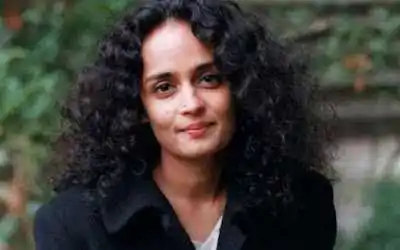

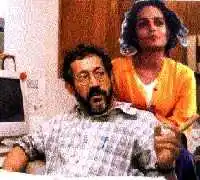
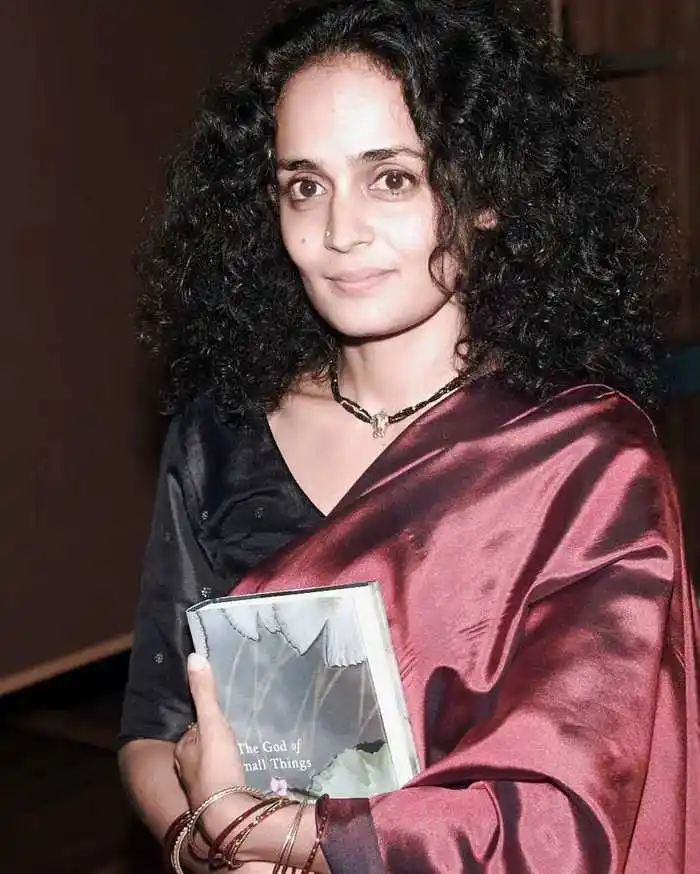

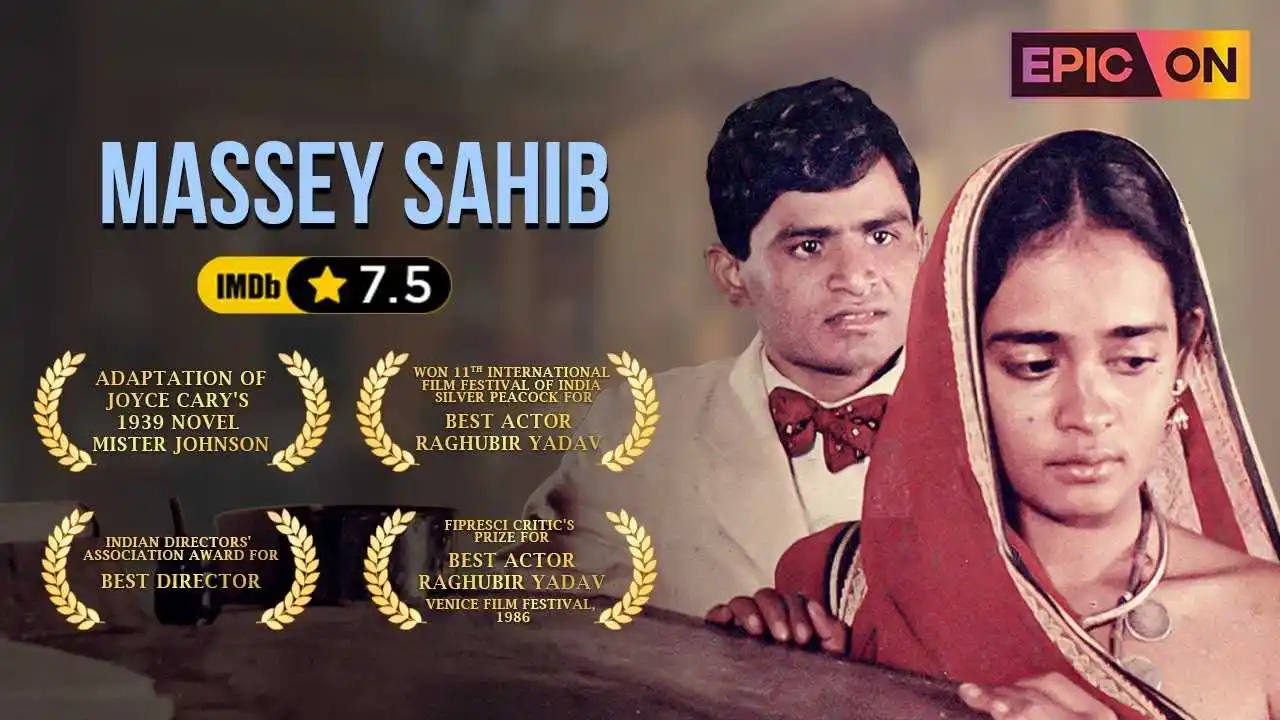
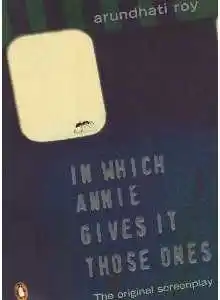
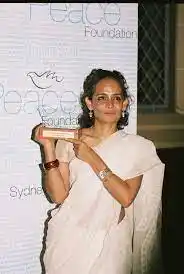
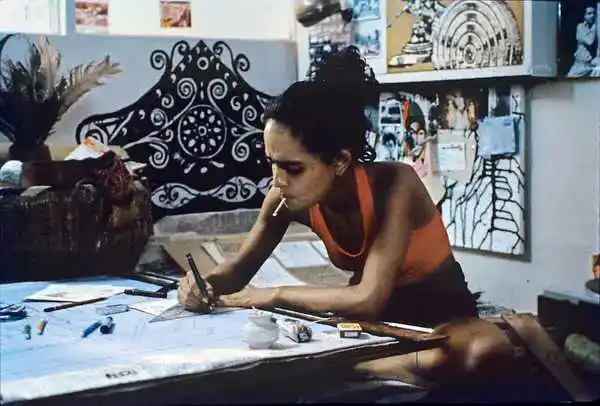



 We now support international payments
We now support international payments
